Ingo Roth
Scalably learning quantum many-body Hamiltonians from dynamical data
Sep 28, 2022

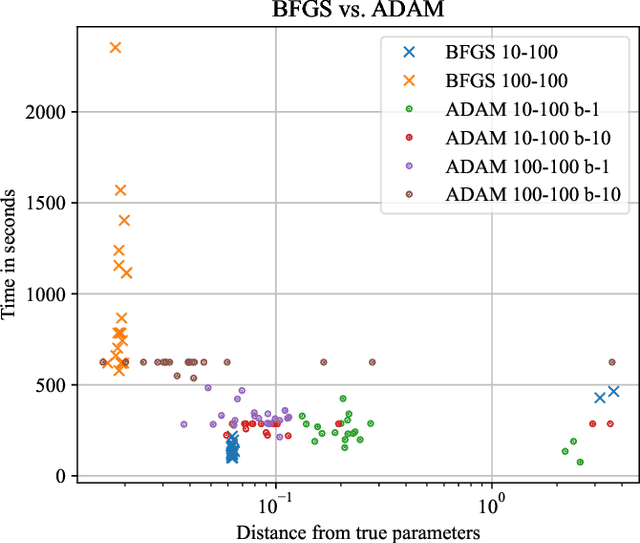

Abstract:The physics of a closed quantum mechanical system is governed by its Hamiltonian. However, in most practical situations, this Hamiltonian is not precisely known, and ultimately all there is are data obtained from measurements on the system. In this work, we introduce a highly scalable, data-driven approach to learning families of interacting many-body Hamiltonians from dynamical data, by bringing together techniques from gradient-based optimization from machine learning with efficient quantum state representations in terms of tensor networks. Our approach is highly practical, experimentally friendly, and intrinsically scalable to allow for system sizes of above 100 spins. In particular, we demonstrate on synthetic data that the algorithm works even if one is restricted to one simple initial state, a small number of single-qubit observables, and time evolution up to relatively short times. For the concrete example of the one-dimensional Heisenberg model our algorithm exhibits an error constant in the system size and scaling as the inverse square root of the size of the data set.
Hierarchical sparse recovery from hierarchically structured measurements with application to massive random access
May 07, 2021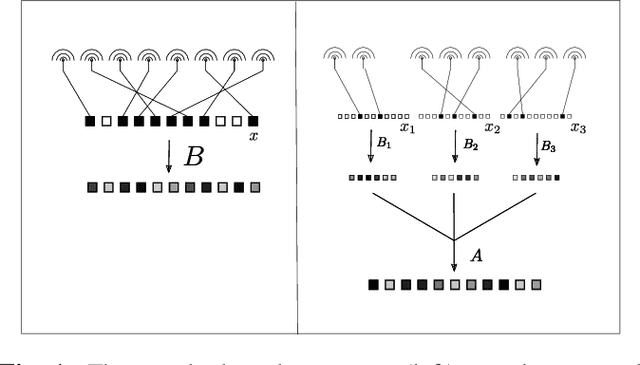
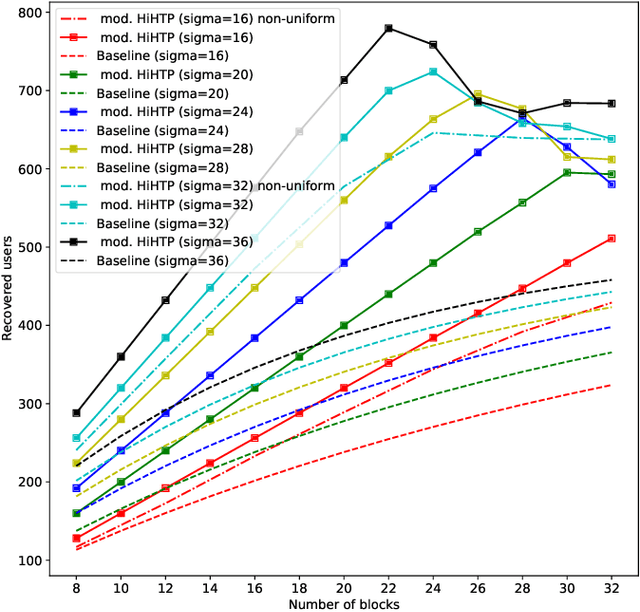
Abstract:A new family of operators, coined hierarchical measurement operators, is introduced and discussed within the well-known hierarchical sparse recovery framework. Such operator is a composition of block and mixing operations and notably contains the Kronecker product as a special case. Results on their hierarchical restricted isometry property (HiRIP) are derived, generalizing prior work on recovery of hierarchically sparse signals from Kronecker-structured linear measurements. Specifically, these results show that, very surprisingly, sparsity properties of the block and mixing part can be traded against each other. The measurement structure is well-motivated by a massive random access channel design in communication engineering. Numerical evaluation of user detection rates demonstrate the huge benefit of the theoretical framework.
Hierarchical compressed sensing
Apr 06, 2021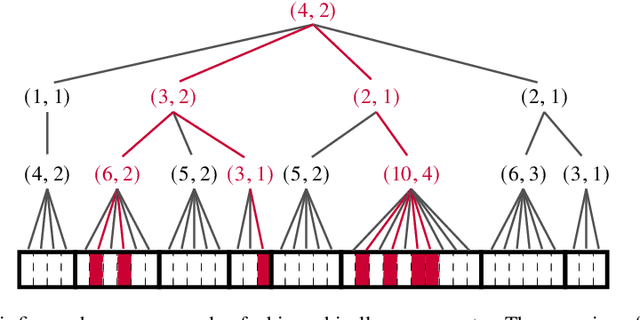
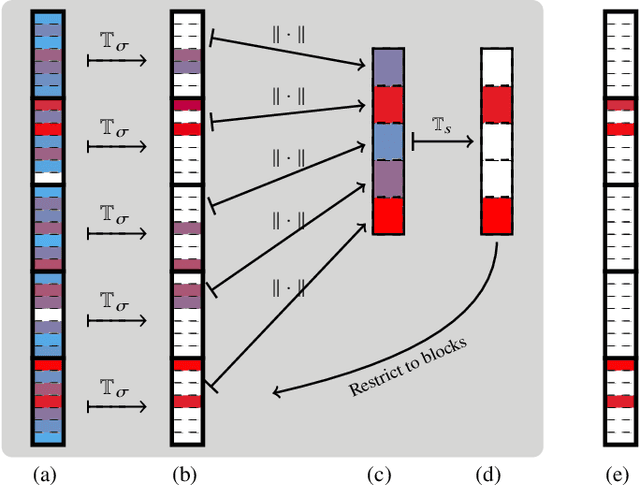
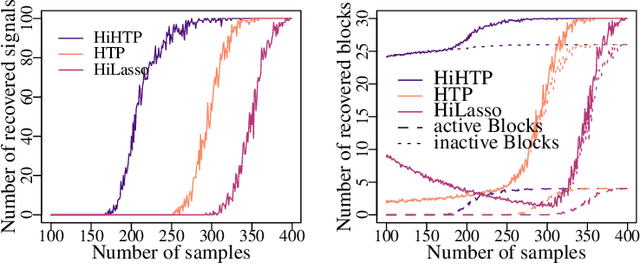
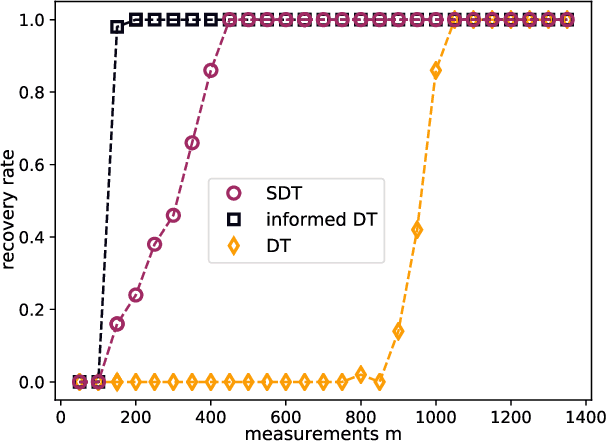
Abstract:Compressed sensing is a paradigm within signal processing that provides the means for recovering structured signals from linear measurements in a highly efficient manner. Originally devised for the recovery of sparse signals, it has become clear that a similar methodology would also carry over to a wealth of other classes of structured signals. In this work, we provide an overview over the theory of compressed sensing for a particularly rich family of such signals, namely those of hierarchically structured signals. Examples of such signals are constituted by blocked vectors, with only few non-vanishing sparse blocks. We present recovery algorithms based on efficient hierarchical hard-thresholding. The algorithms are guaranteed to stable and robustly converge to the correct solution provide the measurement map acts isometrically restricted to the signal class. We then provide a series of results establishing that the required condition for large classes of measurement ensembles. Building upon this machinery, we sketch practical applications of this framework in machine-type and quantum communication.
 Add to Chrome
Add to Chrome Add to Firefox
Add to Firefox Add to Edge
Add to Edge